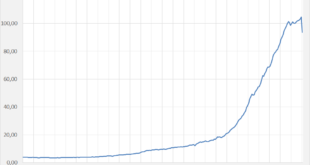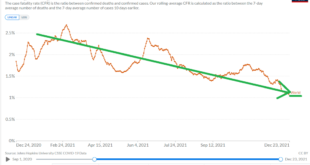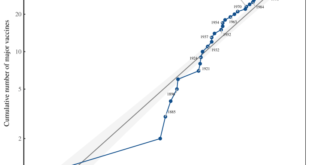from Peter Radford What on earth were they doing? Rocked but undaunted by the great financial crisis the orthodoxy of our central banks survived to fight another day. The system had been saved. That no one saw the onrushing crisis is still being debated. Of course some people saw it coming. Anyone with a scintilla of understanding of Minsky for instance. But those folk are hard to find in the top seats of central banks. The objective of the so-called independent central bank is to...
Read More »Showcasing Yourself with Judy M Baker, Dean Hankey & Jeff Klein – Insights, Goals & Tips
This week on#GoalChatLive Judy M Baker (Book Marketing Mentor), Dean Hankey (Marketing Magician), and Jeff Klein (Business Speaking Sherpa) join host Debra Eckerling to talk about Showcasing Yourself. The threesome - who are fans of speaking for showcasing yourself - share the origins of their "monikers," advice for standing out, and more. The bottom line: You can only share what you know - and how you help - if people know who you are. To take it even further, according to...
Read More »A golden age of macro economic statistics 4. A Bank of England treasure trove.
The Bank of England has a 28 MB Excel dataset containing: “A millenium of macro economic data”. A treasure trove. A good thing about it: as it are long term series and as these are roughly based on national accounts data and not just on economics 101 it’s not only focused on GDP but also on sectoral developments and flows between and within sectors. I can’t show it all, and… will leave, to name only one (!) major part of it, the Flow of Funds data, which, among other things, show...
Read More »Happy Christmas and a healthy 2022
COVID Déjà Vu
from Blair Fix As 2021 comes to a close, I’m having a distinct sense of déjà vu. A year ago, I wrote a post celebrating COVID vaccines as a triumph of science. And I noted that vaccine discovery is a collective endeavour. The cumulative number of major vaccines tracks closely with the cumulative number of scientific papers, a bellwether for humanity’s collective knowledge. Here’s the trend: Figure 1: The cumulative number of major vaccines tracks with the cumulative number of scientific...
Read More »Getting ready for the next pandemic: Can we get patent monopolies on the table?
from Dean Baker From the way our policy types talk about patents, or refuse to talk about them, they must think that the constitution guarantees life, liberty, and people getting incredibly rich from patents. Even as this pandemic has been needlessly prolonged by patent restrictions on the spread of technology for vaccines, tests, and treatments, resulting in millions of preventable deaths, we are still seeing no real debate as to whether we want to rely on these monopolies as a primary...
Read More »On the limited applicability of statistical physics to economics
from Lars Syll Statistical mechanics reasoning may be applicable in the economic and social sciences, but only if adequate consideration is paid to the specific contexts and conditions of its application. This requires attention to “non-mechanical” processes of interaction, inflected by power, culture, institutions etc., and therefore of specific histories which gives rise to these factors … Outside of very specific cases, statistical physics is more likely to provide useful metaphors and...
Read More »Financial regulations
from Lars Syll A couple of years ago, former chairman of the Fed, Alan Greenspan, wrote in an article in the Financial Times, re the increased demands for stronger regulation of banks and finance: Since the devastating Japanese earthquake and, earlier, the global financial tsunami, governments have been pressed to guarantee their populations against virtually all the risks exposed by those extremely low probability events. But should they? Guarantees require the building up of a buffer of...
Read More »Landslide – Eliot Dean Baker – LIVE @ Sutler
PRE-SAVE 'ARE WE STILL DATING?' NOW! -- lnk.to/fFL83P This is an original composition by Eliot Dean Baker. Words & Music: Eliot Dean Baker
Read More »Weekend read – More quotes against economics
from Asad Zaman A previous post Quotes Critical of Economics collected assorted quotes which are useful in writing up different kinds of critiques of economics. In addition, I collected quotes from Romer’s Trouble With Macro which are sharply critical of economics. In terms of the “Loyalty, Voice, Exit” paradigm, I look for “Exit” quotes, which suggest that we need to throw out the entire discipline and rebuild on new foundations; for a proposed alternative, see “Uloom-ul-Umran: An...
Read More » Real-World Economics Review
Real-World Economics Review






